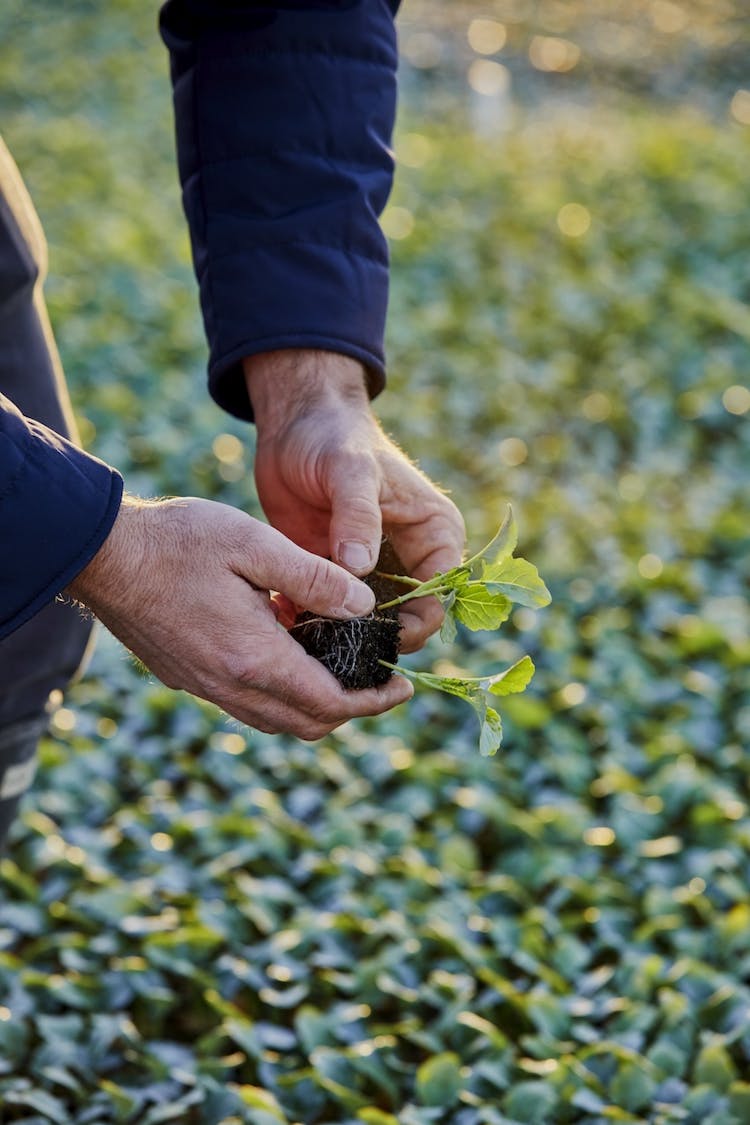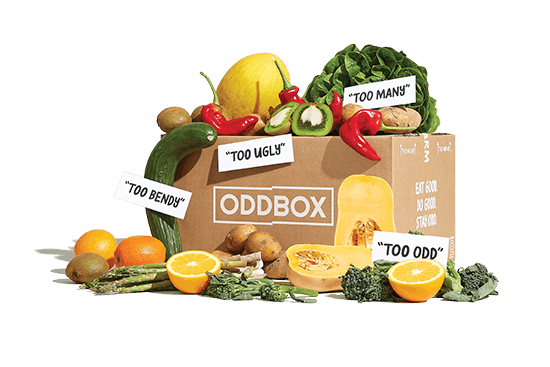The growing rate
Over the last year we’ve seen the price of fruit and veg go up by a whopping 9.45%. We took to the fields to find out what’s driving the increases, and what it means for food waste.

You don’t need us to tell you that everything’s getting more expensive. But when it comes to fruit and veg the picture is a little more complicated than even we could imagine, with a whole host of factors driving up prices across the board. We asked one of our potato growers to tell us more:
“Ultimately, the reason for the huge price increases over the past two years is that, in many cases, demand is now higher than supply. But there are a lot of reasons behind that.
“Firstly, farming is becoming a riskier business every year – with more extreme weather in the UK, the chances of perfect growing conditions, good yields and good quality is becoming more and more unlikely. Flooding has led to crops being ruined or damaged, with root veg being almost impossible to harvest. The ‘good years’ are now few and far between, with many growers closing their farms altogether and others planting less and less to try and minimise the risks.
“We’ve also seen big increases in growing costs. Lots of farms – and machinery – have been purchased through loans. So when interest rates rise, it’s not just people paying off mortgages and personal loans who suffer. On top of that, you have the eye-watering costs of fuel, fertilisers and energy – especially challenging if you’re trying to store crops like potatoes and onions in cold stores for months.”
For all these reasons – and more, including changes to legislation after Brexit and the effect of the pandemic – demand is now higher than supply in the UK. As our grower explained: “What we’re now seeing is a natural correction in produce prices. For years, supermarkets have driven prices paid to growers down, but as they now need to guarantee supply, they’re having to offer growers more money. The same applies to processors, which is why even frozen chips are more expensive.”
So more money for growers can only be a good thing, right? Well, many growers feel that the returns they’re getting aren’t proportionate to the increases supermarkets are making on the shelves – and they’re certainly not enough to balance out the losses they’re making in other areas.
The tip of the Iceberg lettuce
Another one of our growers, this time a carrot supplier, had a similar tale to tell. As well as causing damage to crops and raising the chance of disease, he cited the unpredictable weather as being a factor which has “increased the cost of machinery, with slower progress and more breakdowns and wear and tear”.
He also mentioned labour – yet another factor which has played a part in the huge increases we’ve been seeing. Although paying people fairly is, of course, the right thing to do, rises in labour costs causes knock-on effects throughout the food system.
If the cost of labour goes up on farms – not to mention the challenge of finding people in the first place – then growers will need to pass on those increases up the supply chain. If they can’t, they risk losing huge amounts of money themselves, which is bad news for the future of the industry as a whole.
Less veg, less waste?
So if demand is higher than supply, there must be less waste, right? Well, that could be one possible outcome. In recent weeks Tesco has started accepting smaller-than-usual vegetables from farmers hit by flooding before Christmas, saying they “want to be able to provide support to growers, farmers and suppliers who are facing really challenging conditions.”
This is good news in the fight against food waste overall – if people start seeing that “too small” fruit and veg tastes exactly the same, we’ll have much less work to do. But it will take more than one supermarket temporarily relaxing its specifications to make a lasting difference, or to give growers ongoing support in ever-more challenging conditions.
With the increases we’ve recently made to some of our box prices, we’re proud to be able to continue paying our growers fairly, providing a reliable secondary market for fruit and veg which is at risk of going to waste.
We know it’s not easy for our community to pay extra for an Oddbox each week, and we never take price increase decisions lightly. But you can be sure that – now, more than ever – every carrot really does count. Not just in the fight against food waste, but in supporting hard-working growers, too.

